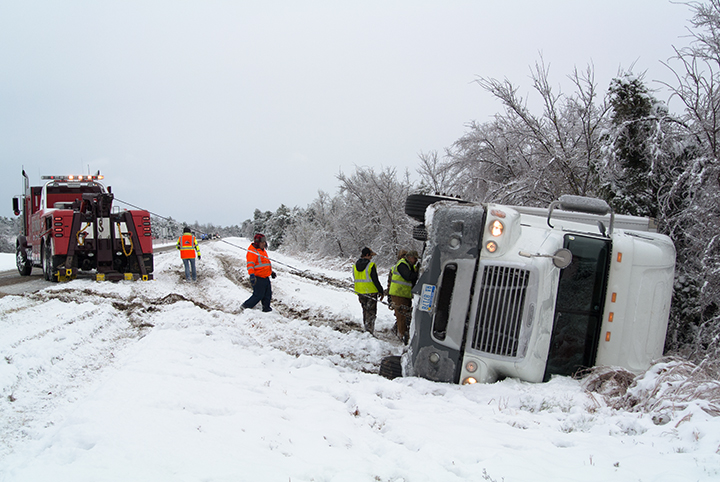
The northeastern United States were in the midst of major winter weather this weekend. And earlier last week the upper midwest was hit with biting cold while the lower midwest experienced sleet and heavy snow. The driver pictured above fell victim to that mess as did many others. Interestingly, several states now post a running tally of road fatalities along their major highways. Indications are Texas tops the list this year with 2752 as of mid November per KTXS Abilene TX. That's a lot. True, Texas is big. But California has 40% more population yet fewer fatalities. And Texas has been at the top of the list for 3 years running now. Easy to wonder what might account for higher fatality rates in Texas, but one might also wonder what accounts for so many deaths overall on our nation's highways? And given the role autos are beginning to play in the developing world, one cringes to think how many deaths worldwide might ensue during coming years. Perhaps only tobacco will turn out to be a greater scourge upon humanity. But tobacco has inevitable consequences. You smoke, you undermine your health and shorten your life. There is no wiggle room, no opportunity to put intellect to work and avoid the inevitable. By contrast, death or injury is not inevitable for most drivers. Put intellect to work while behind the wheel and most bloodshed can be avoided. So, what's the problem? Why isn't it working? Why are the minds of so many people proving so incapable of operating motor vehicles safely? Can humans not ever be fully trusted with their own fate, much less with the fate of others? Is it time to turn driving over to infallible computers? Studies into the structure of human attention, now being carried out within some major universities, could eventually prove insightful. On the other hand, the results of those studies might also provide ever more obscure excuse for failure to take responsibility for the consequences of one's own actions. The driver of the big rig in the ditch above claimed a "4-wheeler" pulled out in front of him while he was passing a line of cars and trucks. He avoided hitting the other vehicle by running into the median, unfortunately turning his rig over. An admirable move? Or stupidity on his part for not allowing leeway for unthinking or miscalculating other drivers? Either way, the problem from both ends was failure to act responsibly with respect to each other. And both drivers tried to excuse their actions in any way they could. How would that change if we knew, for instance, that the refresh rate for human attention can be affected by diet or lack of sleep or the color of ambient light or the volume of ambient sound? Might not each driver just blame some other factor for their own failure to act responsibility? Perhaps it is time computers took over on our roads. Some people certainly think so. Driverless cars are being developed. They aren't that many years away. Is there an iCar in your future, piloted by Siri perhaps? We, for sure, have a group of technologically savvy young people amongst us trying earnestly to solve all of our problems for us. But one problem few people seem to be working on with any success at all is the engineering of our cultures so that more and more of us reliably act responsibly toward each other and toward the environment upon which we depend, instead of grasping at any excuse we can to avoid having responsibility land on us. Drive safe this winter. Please. |
• Posted: Dec 16, 2013 12:35:29
• Comments Welcome
• Vote CoolPhotoblogs
• Purchase a Print
• Share
Friday, December 6th, 2013 Ozark AR USA |